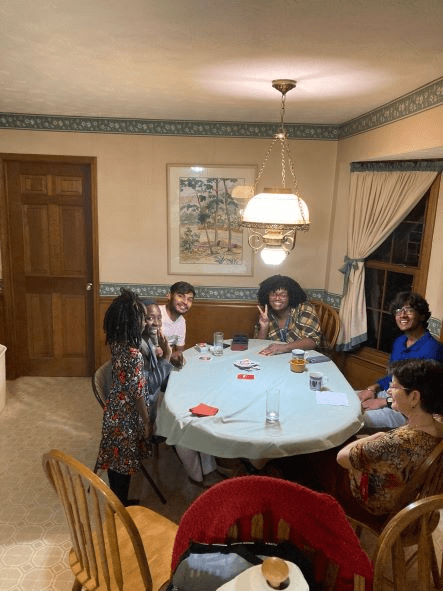
Hey, welcome to the Lambda website! Roughly, Lambda covers the activities of the “Russell Group” (i.e., Armistead (Ted) Russell and the research engineers, post-docs, grad students and undergrads with whom he works), with links to other affiliated individuals. As you will see from the bios, the group conducts fundamental and applied research aimed at better understanding air pollutants and their impacts, with a strong focus on doing studies that are policy- and health-relevant. You will also see that the group has been quite effective in doing important work in those directions. Our work is used in various policy and regulatory decision making at local-to-international levels, and is highly cited in the scientific literature, and this is also reflected in the careers of group members, ranging from individuals leading governmental agency groups (including the Whitehouse), science policy organizations, professors around the world, governmental labs (DoE, EPA) and industry. Current research includes advancing and applying air quality models, linking characteristics of air pollution with human and environmental effects, quantitative assessment of the effectiveness of emissions controls, integrating satellite, ground-based observations and air quality models, integrated assessment of climate and air quality strategies and assessing the impacts of wildland fires on air quality. Of particular interest may be Talat Odman’s work on biomass burning impacts and air quality forecasting: Talats webpage). Lambda has an outdoor platform with an adjoining penthouse lab for conducting air pollution studies, and uses (almost constantly: we do a lot of air quality modeling) the Partnership for Advanced Computing Environments (PACE) supercomputing facility.
If you look further at Georgia Tech, you will see that Lambda exists as part of an incredibly strong group of air quality engineers and scientists with an incredible array of facilities. Lambda is located in the Ford Environmental Science and Technology building, which also houses Earth and Atmospheric Sciences and Chemical and Biomolecular Engineering, and we regularly work with researchers from those departments. In addition to the air quality platform, facilities in the Ford building include a state-of-the-science smog chamber (See Sally Ng’s web page: ), and a large number of labs and extensive instrumentation to conduct both laboratory and field studies (see Jen Kaiser’s, Rodney Weber’s and Greg Huey’s web pages), as well as others engaged in air quality modeling (Yuhang Wang’s web page). We also collaborate extensively with faculty in City & Regional Planning and Emory University’s Rollins School of Public Health.
Potential graduate students interested in joining Georgia Tech to study in the areas noted above are encouraged to apply, and can do so in Civil and Environmental Engineering, Earth and Atmospheric Sciences or Chemical and Biomolecular Engineering. Potential students might also look at linking with some of the former group members at other universities as well (click on their name to see their website):
Sunni Ivey, UC-Berkeley
Fernando Menendez, NC State
Heather Holmes, Utah
Andre Butler, Mercer
Dan Cohan, Rice
Zohir Chowdhury, San Diego State
Shannon Capps, Drexel
Haofei Yu, University of Central Florida
Siv Balachandran, U. Cincinnati
Naresh Kumar, Desert Research Institute of the University of Nevada, Reno
Talat Odman, Georgia Tech
Boris Galvis, Universidad de La Salle
Huizhong Shen, Southern University of Science and Technology
Miaomiao Chen, Nanjing University of Information Science & Technology
Efthimios Tagaris, U. Western Macedonia
Hanlim Lee, Pusan National University
Alper Unal, Istanbul Technical University
Sangil Kim, KIIST
Yangjun Wang, Shanghai University
Guofeng Shen, Peking University
Guoliang Shi, Nankai University
Soonchul Kwon, Pusan University
Jorge Pachon, Universidad de La Salle
Sangil Lee, Korean University of Science and Technology
Sun-Kyoung (Helena) Park, Hanyang Cyber University
Amir Hakami, Carleton Univ.
Alberto Mendoza, ITESM
Burcak Kaynak, Istanbul Technical Inst.
Kasemsan Manomaiphiboon, King Mongkut’s University of Technology Thonburi

